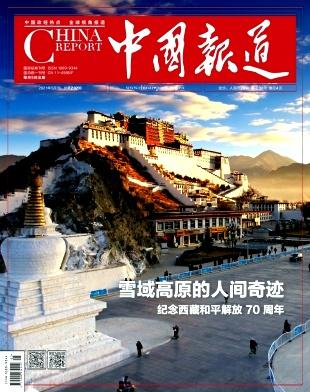新措施治理在中国的宗教
IF 0.7
Q3 AREA STUDIES
引用次数: 0
摘要
2018年,随着国家宗教事务局并入中国共产党统战部,宗教事务重新回到了党的直接控制之下。虽然SARA保留了其名称,但它不再是一个独立的国家机构。2019年至2021年,又出台了五项法律措施。 伊斯兰事务和互联网法规的具体制定也回应了Xi对当代宗教事务的认识问题。根据新的措施,国家要求对宗教团体进行明确的管理,创造与党的分支机构类似的职能和职位。北京进一步加强了对宗教人员的控制,建立了每个宗教人员的档案,包括任何不当行为的细节,以评估他们的可信度。本文的结论是,中国共产党继续以马克思主义的方式致力于最终根除宗教,中国的做法与现有的国际法律规范不同,至少在名义上,中国是签署国。本文章由计算机程序翻译,如有差异,请以英文原文为准。
New Measures for Governing Religions in Xi’s China
With the incorporation of the State Administration for Religious Affairs (SARA) into the Chinese Communist Party’s (CCP) United Front Work Department in 2018, religious affairs have been brought back into the direct control of the Party. While SARA has retained its name, it is no longer an independent state agency. Five further legal measures were introduced from 2019 to 2021. This review essay examines these legal changes in order to update the dominant understanding of Xi Jinping’s attempt to reshape religious order in the hands of the CCP. The specific creation of regulations on Islamic affairs and the Internet also responds to Xi’s perceived problems regarding religious affairs in the contemporary era. Under the new measures, the state has demanded clear administration of religious groups, creating functions and positions like those in the Party’s branches. Beijing has further increased its control over religious personnel by establishing files on each of them, including details of any misconduct, in order to assess their trustworthiness. This essay concludes that the CCP continues to work toward the final eradication of religions in a Marxist manner and that China’s practices differ from existing international legal norms to which, at least nominally, China adheres as a signatory.
求助全文
通过发布文献求助,成功后即可免费获取论文全文。
去求助
来源期刊

中国报道
AREA STUDIES-
CiteScore
1.70
自引率
0.00%
发文量
9353
期刊介绍:
China Report promotes the free expression and discussion of different ideas, approaches and viewpoints which assist a better understanding of China and its East Asian neighbours. A quarterly journal of the Institute of Chinese Studies, it attempts to provide a fresh approach which goes beyond the strictly utilitarian area studies without becoming antiquarian. Launched in 1964, China Report has, over the years, widened its interests and aims and transformed itself into a scholarly journal that seeks a better understanding of China and its East Asian neighbours - particularly their cultures, their development and their relations with China. It is an indispensable source of information on China, its society and culture.
 求助内容:
求助内容: 应助结果提醒方式:
应助结果提醒方式:


